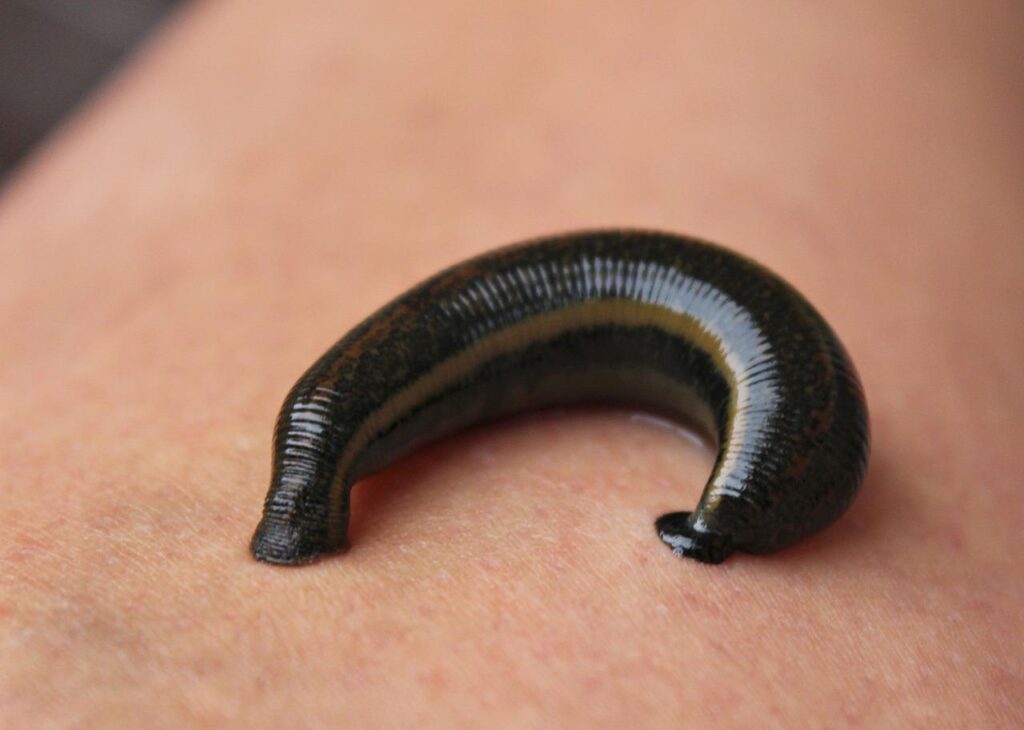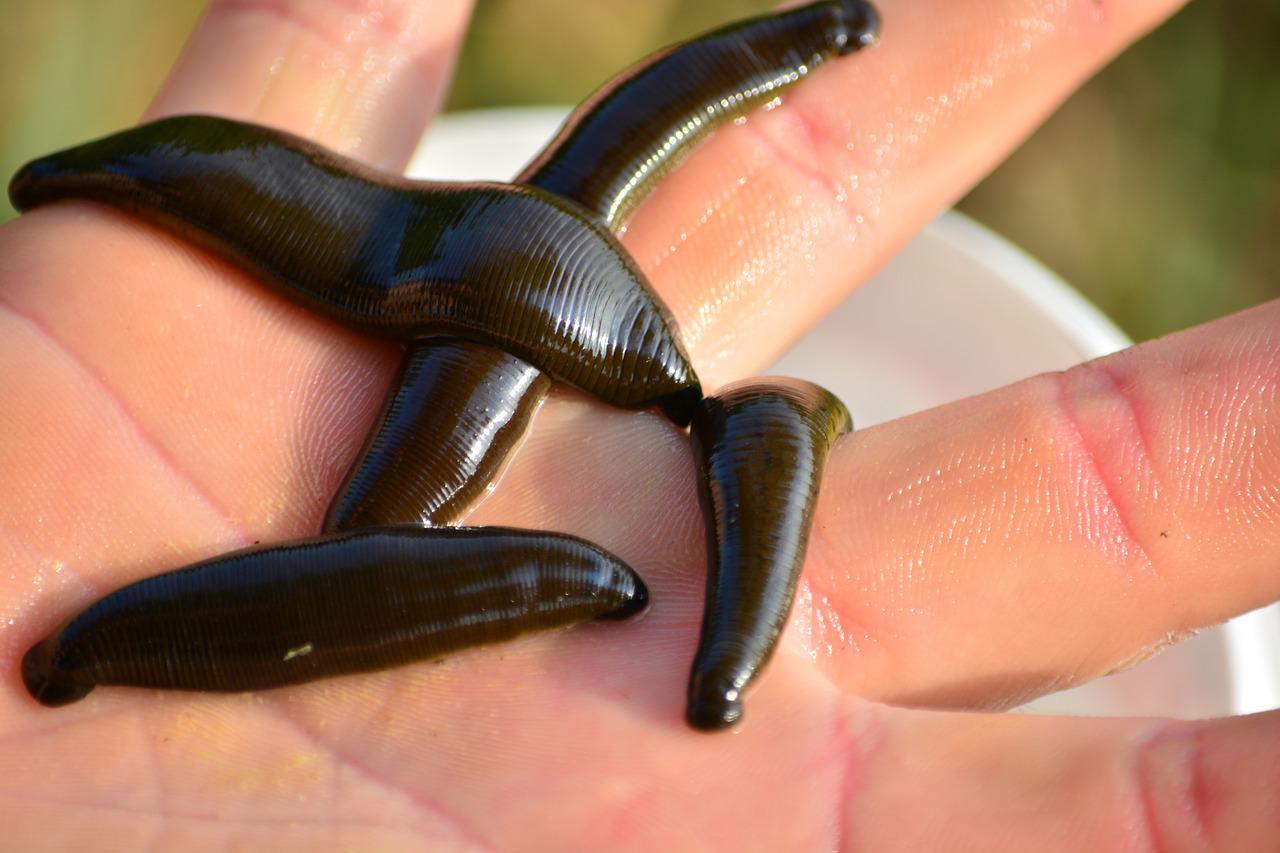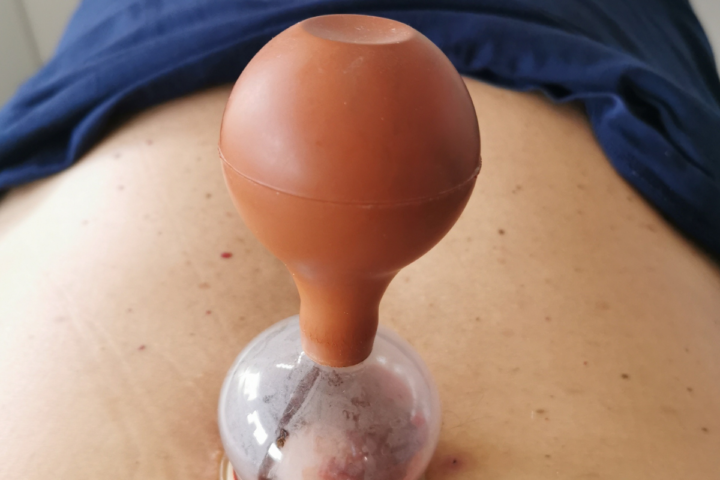Medicinal leeches was already known centuries ago, but despite the passage of time and the emergence of new ways to combat various ailments, hirudotherapy is still a popular method.
Medicinal leeches are parasites that feed on the blood of vertebrates. They suck 10 to 15 ml of blood per treatment. Their saliva contains hirudin, a substance that prevents blood clotting, as well as histamine, which influences the dilation of blood vessels. Substances from the saliva of leeches have a very positive effect on the treatment of many conditions.
What is hirudotherapy good for?
Hirudotherapy It is used to treat abscesses, arthritis and various venous disorders. It is also very effective in treating wounds after plastic surgery and skin grafts, but also after finger, ear or penile suture operations. With heart diseases, leeches have a beneficial effect on inflammation and blood flow. They also help diabetics as they improve blood circulation They are currently one of the most effective medicines for improving cardiovascular function.
Hirudotherapy helps with varicose veins, rheumatism and even headaches. It is also worth using for radiculitis, atherosclerosis, blood pressure problems, and lung and bronchial diseases.
Use of leeches for varicose veins
Hirudotherapy is used as a complementary treatment to surgical treatment of varicose veins. This is because leeches affect the circulation of blood in the body - improving blood supply, which makes the tissues better oxygenated and the capillaries dilate, allowing toxins to be more efficiently secreted from the body.
Hirudotherapy reduces the feeling of heaviness in the legs and eliminates swelling, brightening and smoothing the skin and eliminating pain.
Leeches for hard-to-heal wounds
During hirudotherapy, analgesic substances released from the saliva of leeches eliminate persistent pain. The hirudin, which is also released into the blood, prevents the formation of blood clots and speeds up the healing process.
Use of leeches for lung diseases
Present in the saliva of leeches, eglin shows anti-inflammatory effects and is a potent inhibitor of enzymes involved in the pathogenesis of lung diseases.
Leeches for the nervous system
A number of scientific studies confirm the beneficial effects of hirudoses on stimulating nerve cell growth. The leeches provide the body with neurotransmitters such as dopamine, serotonin and histamine, resulting in their use in the treatment of neurosis and depression.
Leeches for atherosclerosis
Atherosclerosis consists of degenerative changes in the inner and middle membranes of the arteries, causing them to harden, contributed to by too much cholesterol in the blood, Healing leeches are helpful in treating atherosclerosis.
Normalisation of total cholesterol, triglycerides and reduction of LDL, regulation of lipid levels and improvement of vascular health have been observed in patients treated with them. Saratin and hirudin counteract the formation of atherosclerotic plaques, while orgelase improves blood supply to the limbs.
Other uses of leeches
Leeches can also alleviate a range of ailments associated with:
- gastric and duodenal ulcers,
- allergies,
- headache,
- spinal diseases,
- impotence,
- prostatic hypertrophy,
- certain female diseases,
- hypertension
- sciatica,
- ischaemic heart disease,
- haemorrhoids,
- rheumatism.
In addition to their medical use, leeches also have a beautifying effect. This is because the substances present in their saliva slow down the ageing process and have a positive effect on the condition of the skin.

Medical leeches - contraindications
Contraindications to the use of hirudotherapy are diseases, related to the circulatory system. Leeches should not be treated in:
- deep vein thrombosis,
- haemophilia,
- severe anaemia.
Other contraindications include:
- the use of chemotherapy,
- HIV infection,
- skin cancer,
- high fever,
- active tuberculosis,
- mental illness.
Among the most common side effects of hirudotherapy is an allergic reaction to the leeches. Another may be prolonged bleeding occurring after the treatment or bacterial infections. For this reason, the use of leeches is not recommended for people with autoimmune diseases.




